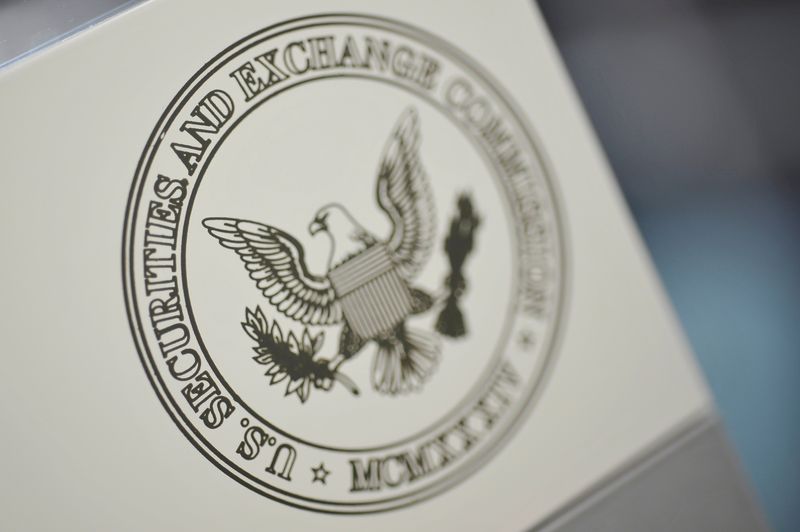By Katanga Johnson
WASHINGTON (Reuters) -The U.S. securities regulator on Monday proposed requiring U.S.-listed companies to disclose a range of climate-related risks and greenhouse gas emissions, part of President Joe Biden's push to join global efforts to avert climate-related catastrophes.
The U.S. Securities and Exchange Commission (SEC) unveiled its long-anticipated draft rule under which companies would disclose their own direct and indirect greenhouse gas emissions, known as Scope 1 and Scope 2 emissions.
It would also require companies to disclose greenhouse gases generated by suppliers and partners, known as Scope 3 emissions, if they are material or included in any emissions targets the company has set.
SEC chair Gary Gensler said the agency was responding to investor demand for consistent information on how climate change will affect the financial performance of companies they invest in. But prominent Republicans accused the regulator of overstepping its authority, and the U.S. Chamber of Commerce vowed to fight parts of the rule.
The draft proposal, subject to public feedback and likely to be finalized later this year, should help investors get the information they need while increasing the reporting burden for Corporate America.
It would also require companies to disclose the "actual or likely material impacts" that climate-related risks will have on their business, strategy and outlook, including physical risks as well as possible new regulations such as a carbon tax.
Companies that have set emissions goals or announced other plans to transition away from fossil fuels would also have to provide details on how and when they expect to do so.
"Companies and investors alike would benefit from the clear rules of the road," Gensler said.
Senator Patrick Toomey, the Senate Banking Committee's top Republican, blasted the rule, saying it "extends far beyond the SEC's mission."
Progressives and activist investors have pushed for the SEC to require Scope 3 emissions disclosure to hold companies accountable for all the carbon dioxide and methane they help generate. Corporations have been pushing for a narrower rule that will not boost compliance costs.
"This proposal will be the light in a pathway toward addressing President Biden's priority of disclosing climate risk to investors and all areas of our society," said Tracey Lewis, a policy counsel at advocacy group Public Citizen.
The SEC said the Scope 3 requirement would include carve-outs based on a company's size, and that all the emissions disclosures would be phased in between 2023 and 2026.
It was unclear how many companies would have to make Scope 3 disclosures, given they would have discretion to decide what counts as "material." While 35% of North American companies have set greenhouse gas targets, those plans do not include Scope 3 emissions, according to S&P Global (NYSE:SPGI) data.
The Chamber of Commerce, the country's biggest business lobby, called the proposal too prescriptive and complained it would force companies to disclose information that was largely immaterial at the expense of more meaningful data.
“The Supreme Court has been clear that any required disclosures under securities laws must meet the test of materiality, and we will advocate against provisions of this proposal that deviate from that standard," Tom Quaadman, an executive vice president with the group, said in a statement.
The Investment Company Institute, which represents global investors, said the proposal "will provide investors with comparable, consistent, qualitative, and quantitative information."
LEGAL CHALLENGES
The SEC spent the past week shoring up the draft against potential legal challenges, six sources told Reuters.
Corporate groups say there is no agreed methodology for calculating Scope 3 emissions, and that providing that detail would be burdensome and would expose companies to litigation if third-party data ends up being wrong.
The SEC tried to address that concern by proposing to protect Scope 3 disclosures with a legal safe harbor that already exists for companies' forward-looking statements.

Legal challenges to the rule will likely argue that the SEC lacks the authority to require Scope 3 emissions data, something the agency's Republican Commissioner Hester Peirce said on Monday in voting against the proposal.
Some experts say the SEC clearly has authority in this area because investors urgently need better data. They noted that a record $71 billion flowed into U.S. environmental, social and governance-focused funds last year, according to Morningstar.